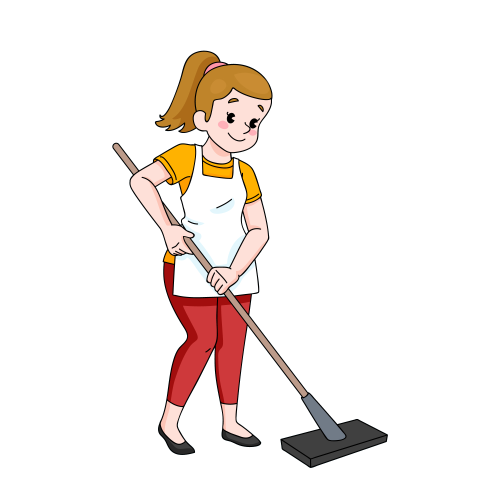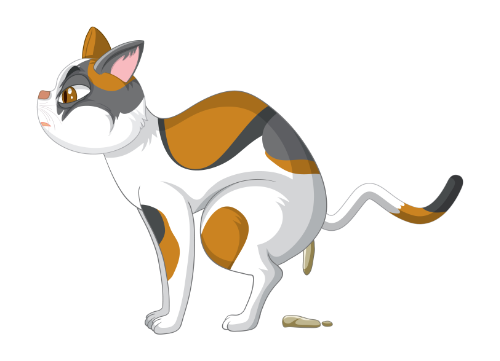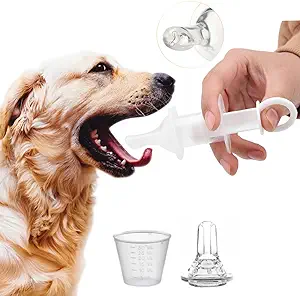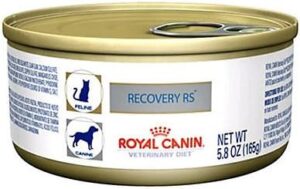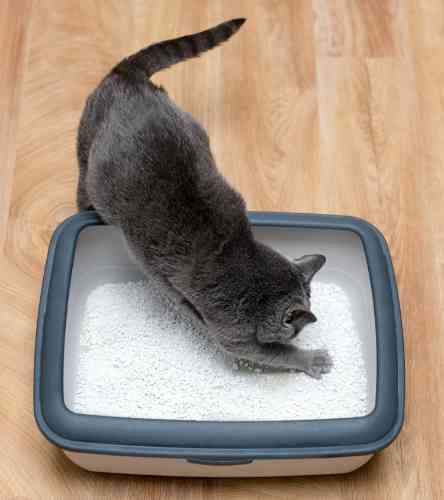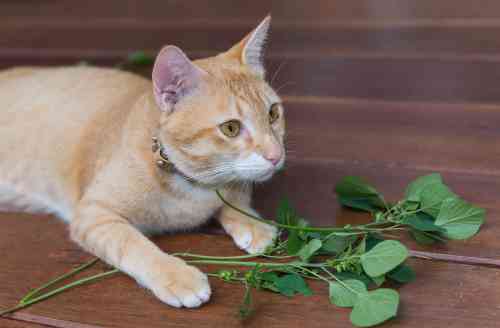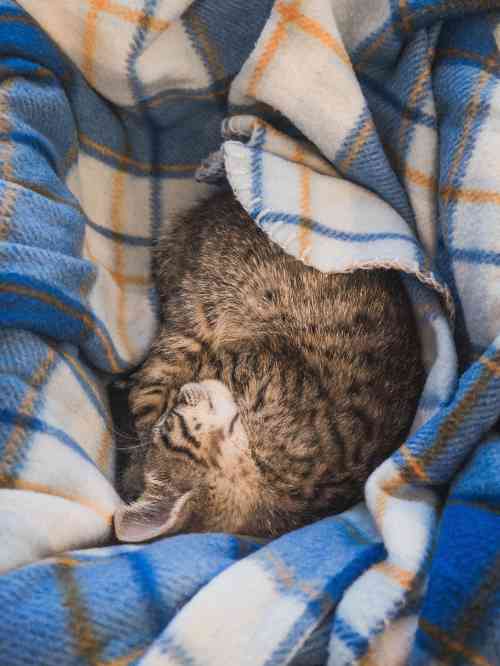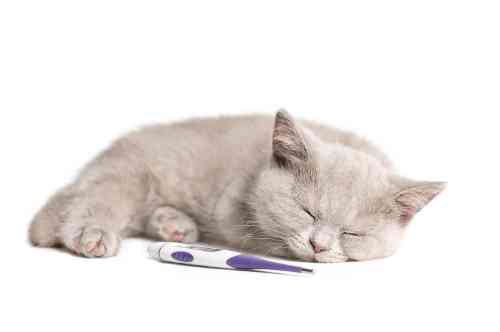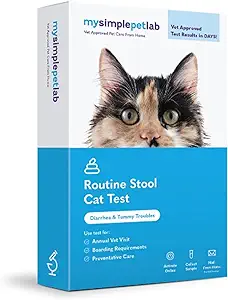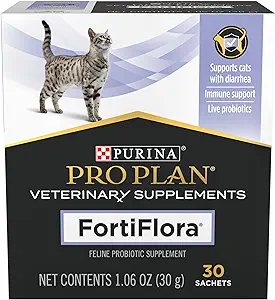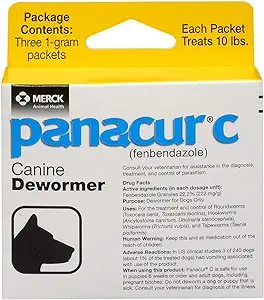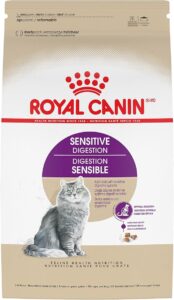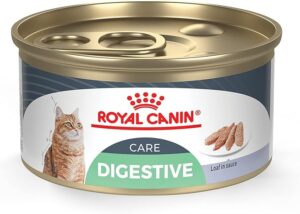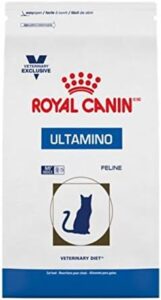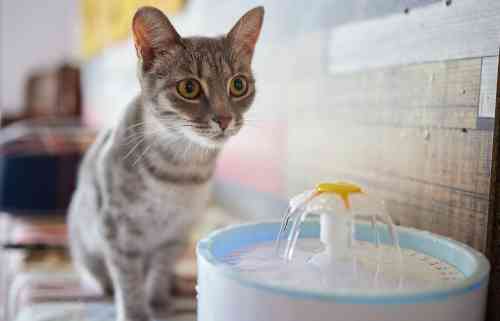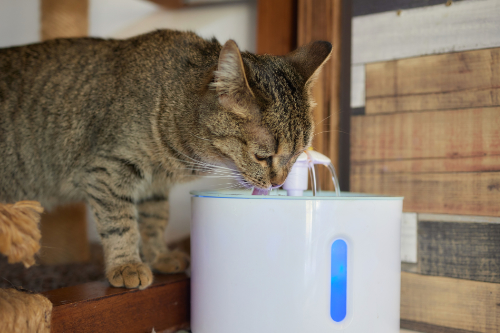Treat your cat’s diarrhea with home remedies
DIY solutions
Diarrhea in cats and more specifically, diarrhea in your cat, is always super annoying. For your cat because he always feels the urge and for you because you always have to clean the litter box. Or worse, your floor has to be mopped. However, very often it is not a dangerous problem. In this article we discuss the possible cause of diarrhea in your cat, the symptoms you may notice and how a diagnosis can be made. But the most important thing we tell you is how you can treat your cat’s diarrhea yourself with natural remedies and DIY tips and tricks. Your cat will undoubtedly get rid of that annoying diarrhea very quickly. And you’ll also be done cleaning.
Acute diarrhea versus chronic diarrhea
You can read about the natural treatments we offer for the diarrhea in your cat later in this article. But it is useful to know what is causing your cat, to apply the right treatment. And for that you first need some explanation.
Diarrhea in cats, but actually in all animals, can be divided into two groups. On the one hand, you have diarrhea that develops very suddenly and rarely lasts longer than two to three weeks. Usually only about 3 days. This we call acute diarrhea. But on the other hand, you also have cats that have diarrhea for a long time. We call this chronic diarrhea. The fact that there is a difference between the two is important because the diarrhea in those cases requires different treatment.
Acute diarrhea in an otherwise healthy cat
If your cat has developed diarrhea very suddenly, i.e. overnight, then something has somehow happened or developed in its intestinal tract that is preventing normal digestion. The functioning of the intestines is therefore disrupted. If this is not too serious, your cat will not feel ill. So apart from his diarrhea he is otherwise acting normally. In this case, most of the time, your cat has eaten something wrong, such as a spoiled piece of meat. Or he may have been nibbling on a poisonous plant. But there can also be a viral infection. The most common diarrhea viruses in cats are a rota virus or a corona virus (not to be confused with COVID-19! It is a different virus).
If your cat does not otherwise behave ill, there is no need to have your cat examined further. In most cases, your cat’s diarrhea will disappear after 2-3 days. You do have to make sure that your cat is getting enough water. Due to the diarrhea he also loses a lot more water and he has to replace it with new water.
Acute diarrhea and your cat feels ill
A different story is if your cat has suddenly developed diarrhea and also feels ill. He clearly behaves differently than you are used to from him and he hardly wants to eat. Sometimes they may also vomit. In this case, it is wise to measure whether your cat has a fever. A normal body temperature for a cat is between 105°F and 102.5°F (38.1 °C and 39.2 °C). Above that, your cat has a fever. In that case, your cat has clearly gotten an infection and most of the time it is due to a virus But a bacterial infection can also be the cause in this case. In most cases of a bacterial infection, Salmonella or Campylobacter bacteria are involved. Most of the time these resolve themselves quickly.
In the meantime, your cat should get some food in his belly and, above all, plenty of fluids. But he doesn’t want to. You can do this using a syringe with which you can give liquid food through his mouth. For example, ground chunks dissolved in water. There is also special wet food that you can easily dissolve and give to your cat with a syringe.
As long as your cat is getting food and keeping it inside and he doesn’t look extremely ill, you can wait and see what happens for a few days. In the meantime, you should continue to monitor your cat carefully to ensure that he or she does not show any signs of dehydration. You can recognize this by deep-set, less shiny eyes and his skin that is no longer as resilient when you make a fold on his back. Such a fold should expire immediately. His gums should also not feel sticky. Do you need a video showing how you research this? Then you can watch the next video.
Prolonged, chronic diarrhea
Did your cat have diarrhea for more than three weeks? Then your cat has chronic diarrhea. In that case it may be:
- A food intolerance in which certain nutrients are not digested properly and therefore can’t be properly absorbed from the food.
- Either there is a parasite in his intestines. These could be roundworms or hookworms, for example. Very occasionally it is a tapeworm. Or a single-celled intestinal parasite such as Giardia is at play.
- In addition, intestinal inflammation may be involved (for example inflammatory bowel disease IBD).
- Food allergies are also common
- A pancreatitis
- Intestinal tumors. The latter rarely occur in young cats. In older cats, lymphosarcomas or adenocarcinomas are the most common intestinal tumors that cause diarrhea in cats.
In the case of long-term chronic diarrhea in cats, dehydration symptoms rarely occur. The diarrhea is often more viscous than real watery stools. They can easily replenish the fluid they lose with their feces with their drinking bowl. They will drink a little more than normal, but usually not extremely much.
Causes of diarrhea in cats
Above we have already mentioned quite a number of causes of diarrhea. For the sake of completeness, we list the most common causes of diarrhea below.
Acute diarrhea:
-
-
Ate something wrong, for example a poisonous plant or spoiled food
-
virus infections, for example Rotavirus or Coronavirus (not Covid-19!)
-
Bacterial infections such as Salmonella or Campylobacter
-
Food intolerance
-
warm weather
-
stress
-
antibiotics
-
deworming
Chronic diarrhea:
-
Parasitic infections such as roundworms, hookworms as well as single-celled parasites such as Giardia
-
Food intolerance
-
Food allergy
-
Pancreatitis
-
Inflammatory bowel disease (IBD)
-
Tumors in the intestines such as
-
Lymphosarcoma or Adenocarcinoma
-
Diarrhea in cats due to eating something wrong
Diarrhea in your cat due to a virus
Diarrhea in your cat due to parasites
Diarrhea in your cat due to worms
Diarrhea in your cat due to heat
Diarrhea in your cat as a result of antibiotics or deworming
Deworming is a toxin that kills the worms in your cat’s intestines. But the cheaper deworming products are also a kind of toxin for your cat’s intestinal cells. The intestinal cells can become damaged, resulting in diarrhea in your cat. Usually this diarrhea only lasts 1 to 2 days.
Diarrhea in your cat due to a food allergy
It is not very common in cats, but a food allergy can also be the cause of diarrhea in cats. This usually starts around one to two years of age. Or after you have switched to a different diet, of course. The allergic reaction causes the intestinal wall to become inflamed, resulting in diarrhea. This diarrhea has been going on for a long time and does not resolve itself after a week.
Symptoms in case of loose stools in cats
If your cat has diarrhea, you will of course see loose stools. How watery the diarrhea is depends on the location in the intestine where the problem is located. If the cause of your cat’s diarrhea is mainly in the small intestine, the diarrhea will be very watery. If it concerns the large intestine, the stool is more knit-like. And of course there can also be combinations of the two.
But besides the diarrhea, you may notice more things in your cat. This may also be the case:
- A trace of blood in the stool
- Pooping (much) more often than you are used to from him
- Mucus surrounding the stool
- Stomach ache
- Nausea
- Vomiting
- Being generally ill
- Having a fever
Do you notice that your cat is losing a lot of fluid and looks quite ill overall? Then it is important that you take your cat to your vet for treatment. Dehydration occurs quite easily and must be compensated for. Otherwise your cat may die.
Diagnosis in case of diarrhea in your cat
As we mentioned above, most causes of acute diarrhea resolve themselves. Your cat’s immune system should be excellent. Your cat’s body will then ensure that the cause is resolved. Therefore, it is not necessary to know exactly what the cause of your cat’s diarrhea is in the first instance. Only if the diarrhea lasts too long or if your cat is too sick will it be necessary to make a diagnosis and find out what the cause of your cat’s diarrhea is.
Your vet can examine your cat’s diarrhea for parasites, bacteria and digestive problems. In addition, your vet can also do a blood test or a urine test to obtain additional information about your cat’s diarrhea. If the diarrhea has been going on for a very long time and the first treatments do not help, your vet will be able to take some pieces of tissue, the so-called biopsies, from the intestine under anesthesia and send them for further examination.
However, you can also test for intestinal parasites, including Giardia, yourself. You can do this with the following test. Is the test positive? Then your cat needs a treatment.
DIY treatment for diarrhea in your cat
In principle, it is preferable not to stop diarrhea if it does not bother your cat too much. It is a mechanism by which your cat gets rid of the harmful substances that cause diarrhea from his body as quickly as possible. In case of diarrhea, the intestinal contents, including the bad material, will move very quickly from the stomach to the anus. The faster he gets rid of it, the faster he will heal his intestine. However, it is very annoying for us as owners if we have to mop and brush all day to clean up the diarrhea. In addition, some causes are also contagious to us, so it is extra important that our house remains clean. So if your cat can’t control his diarrhea until he reaches the litter box, it is wise to lessen the diarrhea.
Stop diarrhea in your cat with medication
Short-term diarrhea, for example because he ate something wrong or caught a virus, can be prevented by giving your cat a diarrhea inhibitor such as Nutri-Vet Anti Diarrhea liquid. You need to give this twice a day for about 3-4 days to your cat. It is not a cure for the cause of the diarrhea. It just minimizes the fluid in the stool and thus the diarrhea. So you can stop giving it at any time once the diarrhea has gone.
To support your cat’s intestinal flora so that bad bacteria and parasites have less opportunity to adhere to your cat’s intestinal wall, you can use probiotics such as Fortiflora. This gives the good bacteria some extra strength to support intestinal function and thus resolve the diarrhea as quickly as possible.
Treat diarrhea in your cat with food
You can also give your cat easily digestible food. This helps if intestinal function temporarily does not work properly, but also if there is a food intolerance. With an easily digestible diet, fewer undigested food ingredients remain in the intestine. Less undigested food then enters your cat’s large intestine. There, the intestinal bacteria, the so-called intestinal flora, will digest any undigested food with the formation of a lot of gas and toxins. It will mainly be the “bad” intestinal bacteria that will multiply, causing an incorrect balance in the intestinal flora.
By feeding your cat easily digestible food, he will get more nutrients from the food while he has diarrhea and the intestinal flora will remain better balanced. If your cat’s diarrhea occurred as a result of a food intolerance, your cat always has difficulty digesting its food sufficiently and therefore always has a problem with its intestinal flora. You will often hear a lot of gurgling in your cat’s intestines. This is an easily digestible food that is very suitable in this case.
Tips in case of loose stools in your cat
-
By tips we do not so much mean treating the diarrhea, but rather supporting your cat if he has diarrhea.
-
-
- Reduce the amount of stress. For example, if he is suffering from stress from a neighboring cat, keep your cat indoors for a few days so that he is not bothered by the other cat. Unless, of course, staying indoors causes extra stress.
- Offer your cat sufficient hiding places if the stress is caused by fireworks or thunder, for example.
- Keep a close eye on your cat. Especially the amount of food he eats in a day, the shine in his eyes, the resilience of his coat to detect dehydration, if he is playing and possibly his body temperature if he has a fever. Do you have doubts about something you see? Please contact your vet. You can do this by using the button at the bottom of this page.
- Keep a close eye on hygiene. Make sure your house stays clean and that diarrhea does not get on food you eat or on objects you eat with. This is because some causes of diarrhea can also be contagious to humans. So wash your hands well before you eat.
-
Is diarrhea in cats contagious to humans?
Unfortunately this can be the case, yes. But luckily usually not. The single-celled parasites can be contagious to humans. And you can get your cat’s tapeworm too. That’s why it’s important to maintain good hygiene, especially when your cat has diarrhea. Make sure you always wash your hands before eating and thoroughly clean any surfaces where the diarrhea may have been left on. Especially the countertop and dining table!
When do you go to the vet?
If your cat gets a dull look in his eyes and his skin remains somewhat upright, there is a chance that your cat is dehydrated. In that case, it is important that your cat is examined by your own veterinarian. If necessary, he or she can give your cat an IV. In mild cases, they will opt for a subcutaneous infusion and your cat can go home again. In severe cases, your cat should be admitted to your vet. If necessary, your vet can also prescribe a course of antibiotics and conduct further investigation into the cause of the diarrhea.
It is also wise to contact your vet if your cat has a lot of blood in his diarrhea. A trace of blood won’t hurt. And even if your cat appears ill, it is wise to have your vet examine your cat.
Has the diarrhea been going on for a long time and is it not going away? And did the above advice not work? Then your cat may have pancreatitis or intestinal inflammation. This ensures that your cat’s digestion does not proceed properly, causing diarrhea and abdominal pain. In that case, you will also need the help of your vet to treat your cat.
Good luck in treating this nasty diarrhea!

